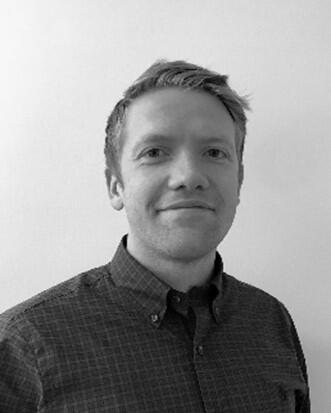Securing a career in safety
Jon Tolaas pursued a master's degree in process safety technology and is currently working as a safety consultant in Safetec. Read more about his experiences and advice here.
Hovedinnhold
Why did you decide to study process technology at UiB?
I had a bachelor's degree in petroleum and process technology, which gives me a broad basic understanding of the subject fields mathematics, physics and chemistry in addition to petroleum and process related subjects. It was the courses related to process technology that appealed to me the most during my bachelor studies, especially "fluid dynamics/flow theory". I thought it was fascinating to learn about how liquid flows under different conditions. After a while, I became aware of the master specialization in process safety safety at UiB. The master specialization connected together fluid dynamics, chemistry and thermodynamics to explain explosions and combustions, whilst with a focus on safety. This appeared as a natural continuation of the bachelor studies, and I haven't regretted my decision once!
The period during my master studies was the best time I ever had during my studies. We were 8 students with our own desk in a student office at the Department of Physics and Technology. The subjects were interesting and challenging - how to describe the physics in an explosion? Courses like Combustion physics, Numerical techniques for process technology (CFD - Computational Fluid Dynamics) and risk analysis filled my student days.
In the course Explosion Hazards in the Process Industries we mixed combustible gases together, gasser sammen, ignited the mixture and measured - among other things - the explosion pressure and the combustion rate of the flame using a high-speed camera! There was much focus on the CFD-program FLACS in the specialization. FLACS is a commercial tool that can be used to e.g. impact assessments of gas distribution and gas explosion in the industry. Students in the specialization completed an introduction course in FLACS as part of the study plan. I believe the introduction course in FLACS and courses on risk analysis are very valuable for students that wish to work in the field of safety after their studies!
What did you write your master thesis on?
In my master thesis I constructed and assessed a model on the combustion rate of different gas mixtures, including hydrogen/air gas mixtures and carbon monoxide/air gas mixtures. The purpose of my thesis was to improve existin models that are currently used in the industry. The program MatLab and FLACS were utilized a lot during the thesis, and are tools that I use weekly in my work today. I could freely choose what type of thesis I wanted to write about within the safety field, and it was nice to be able to go in depth into something that I thought was very interesting (and frustrating at times! 😊).
How was the transition from your studies to work life?
I was able to continue working on a subject that I was interested in during my master studies and solve practical problems within technical safety for customers at the same time. It is a rewarding feeling. At the same time, I experience that the courses from my master’s degree were well-sought after within the safety industry.
What do you work with?
Today I work in the company Safetec as a safety consultant. Safetec is a leading agent in services such as safety, risk analysis and emergency preparedness. There are large variations in work tasks at Safetec, depending on what one wishes to work with. I have principally worked with technical safety and reliability of technical systems.

How has your education benefitted you in your current job?
Every day is different, and the tasks can range from simulating a fire scenario or gas explosion, constructing 3D models, using Python for data processing, to conducting work meetings about HAZOP, HAZID and FMECA with a customer.
Additionally, I have had the opportunity to learn and work with safety related to sustainable energy sources such as hydrogen and batteries. In working with battery risk, I have often used the CFD-program KFX, which is used to simulate fire scenarios. The work consists of both setting oneself into complex technical systems, while at the same time simplifying solutions and thinking creatively to make good evaluations of problems that the customers have. I like that!
I get to use the professional knowledge from the master's specialization on a daily basis and further develop it in collaboration with good colleagues. I work weekly with the CFD-program FLACS, which I was introduced to during my master's specialization.
Did you participate in relevant activities during your studies? (work, positions, exchanges, etc.)
During my bachelor's degree, I spent six months on an exchange to Perth, Australia. It was very nice, and the stay consisted of a lot of programming (I mainly took programming subjects like Java, Excel and Matlab) as well as a lot of tennis playing in the heat 😊
I was a study assistant in the subject "Explosion hazards in the process industry", so I was lucky to be able to participate in explosion experiments once more. I was then lucky again to be able to travel to a summer school in combustion physics in Germany when I took the "combustion physics" subject during my master's degree. I was later a study assistant in the same course as well.
Do you have any tips for students who are thinking about job opportunities after their studies?
If you are interested in, or curious about, topics such as fluid dynamics, programming (e.g. Python), computing, or technical security, keep your eyes open for work in the safety industry. Work within this field is varying and challenging and can really be recommended.
